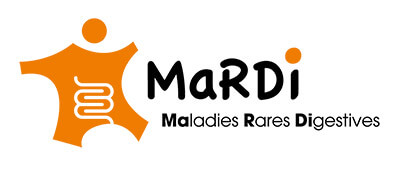Definition and clinical description
Congenital lactose intolerance is a disease caused by the dysfunction of lactase, an enzyme that helps digest milk.
Symptoms and prevalence
Diarrhoea appears from the first days of life, lactose being one of the main constituents of milk. This is a fermentation diarrhoea, resulting in the emission of numerous liquid and acidic stools, containing lactose, glucose and galactose.
Vomiting is frequent and abdominal bloating is very severe.
Malnutrition is rapid and severe. Hypercalcaemia with nephrocalcinosis with poorly understood mechanism is common, and can be life-threatening.
This disease is rare except in northern Finland where its incidence is 1/6,800 births.
Diagnostic method
The diagnosis is suspected from clinical signs of fermentation diarrhoea and associated hypercalcaemia.
Management and treatment
Removing lactose from the diet quickly stops diarrhoea, and replacing milk with an artificial lactose-free formula results in satisfactory weight gain. Subsequently, the small amounts of lactose contained in yogurts or cheeses are tolerated.
Genetic counselling
The mode of inheritance is autosomal and recessive.


